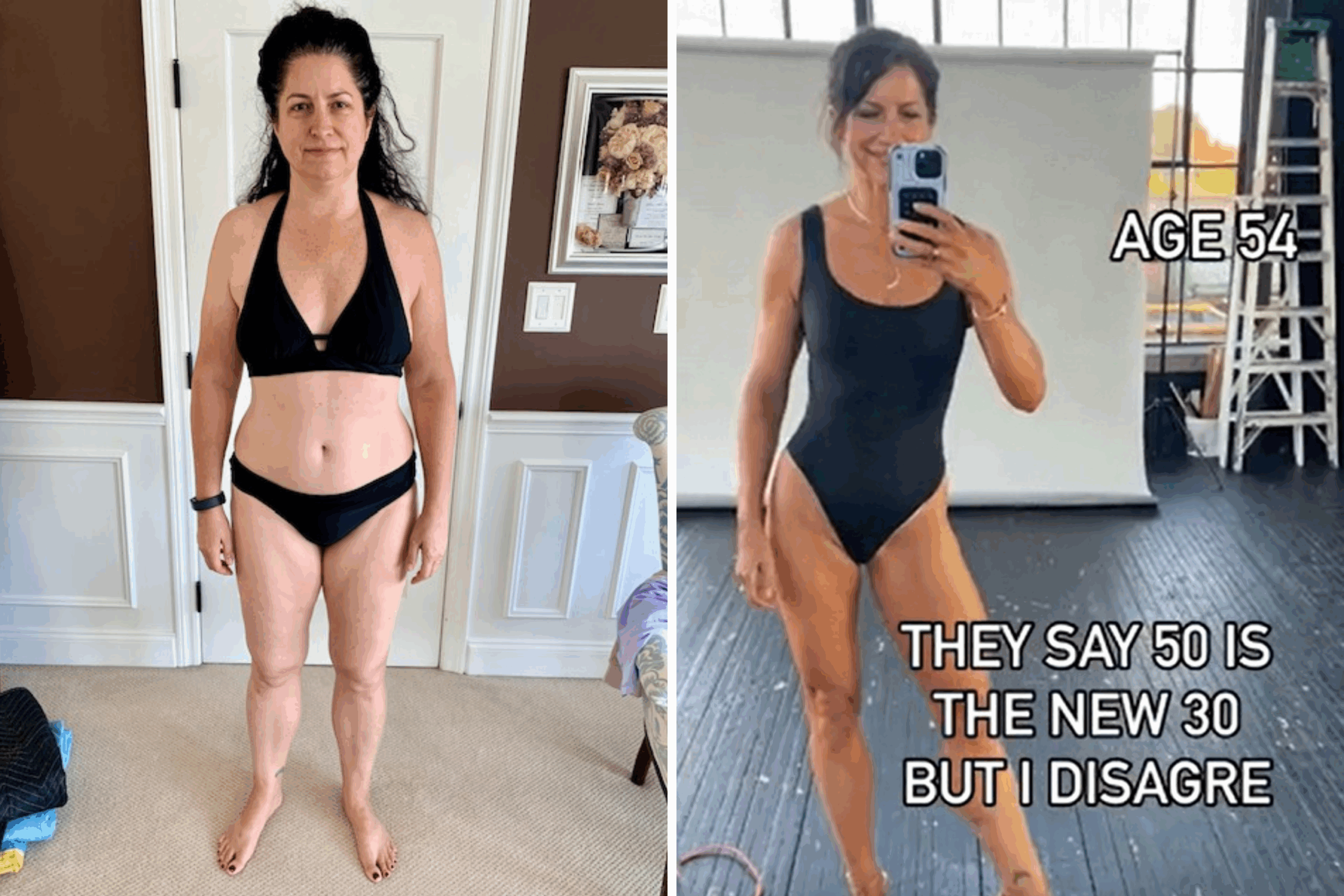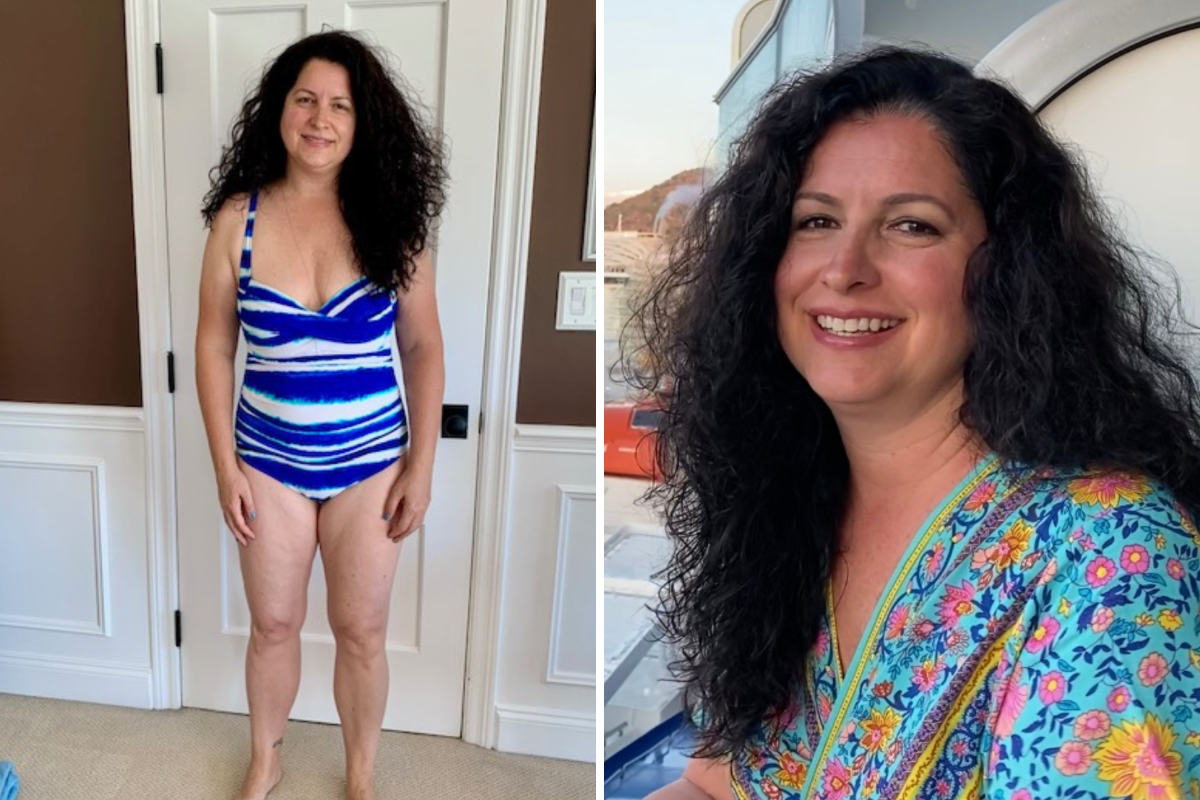
“Midlife women getting fit is not just a trend, it’s a movement,” said Denise Kirtley, a fitness coach who recently racked up over 13 million views on Instagram.
In an interview with Newsweek, Kirtley, from Los Angeles, California, discussed the video in which she can be seen strutting her stuff wearing a black leotard and high heels.
Showing off her slender physique and toned legs, an extract from the caption reads: “50 is the new 50, my midlife Sisters. We aren’t trying to be younger. We are redefining what aging looks and feels like.”
That message resonates even more when contrasted with a survey by Talker Research, commissioned by NEOSTRATA, which reveals that younger generations are actually more stressed about aging than Gen X and baby boomers.
Instagram/@fiftyfitnessjourney
The 54-year-old told Newsweek: “It’s not about trying to look younger or be 30 again. It’s about getting strong in midlife and beyond so we can live incredibly full, vibrant lives. We are fully embracing where we are at in life and making the very most of every day.”
While health and fitness are a huge part of Kirtley’s life, it hasn’t always been this way.
She said: “I was never an athlete but became one out of necessity at age 49. Perimenopause hit and my weight dramatically increased over a period of about five years.”
Many people going through menopause experience a range of symptoms, including weight gain—especially around the abdomen (“menopause belly”)—as well as night sweats, hot flashes, vaginal dryness, urinary tract infections, irregular periods, depression, thinning hair, and mood swings. According to UChicago Medicine, weight gain is often one of the most frustrating symptoms due to its impact on overall quality of life.

Denise Kirtley
A Transformation Journey
At 50, Kirtley began tracking macros, eating more protein, and lifting weights for the first time. Nine months later, she’d lost 50 pounds; within 27 months, she competed in bodybuilding. Now, she lifts four times a week, walks for heart health, hits 10,000 steps daily, and feels fitter than ever.
She told Newsweek that her transformation inspired hundreds of women online. So much so, she decided to quit her career as an executive recruiter and give up her business to help other women.
“I have found my life’s purpose,” she said.
Dr. Rosie Khan, a general practitioner, previously told Newsweek: “Adopting a healthy lifestyle is crucial for women experiencing perimenopause or menopause whether you are taking HRT or not. It not only helps ease common symptoms but also supports overall health and long-term well-being.”
According to the current Physical Activity Guidelines for Americans, adults need 150 minutes of moderate-intensity physical activity a week. Based on data from the 2020 National Health Interview Survey (NHIS), which included 21,153 sample adults, the percentage of women meeting physical activity guidelines declined with age: (28.7 percent) for ages 18–34, (22.7 percent) for ages 35–49, (17.6 percent) for ages 50–64, and just 10.8 percent for those 65 and older.
Changing the Narrative Around Midlife
Kirtley told Newsweek: “We grew up with the notion that once you hit 50, it’s all over. Decline happens, you gain weight, you stop dreaming about your future and that’s just the way it is. The generations before ours simply accepted this narrative. It’s just the way it was.
“This generation has rejected it and it’s about time!
“My mother said to me the other day that she wished she knew that she needed to lift weights and get strong. I wish she did, too! But we know. We are the generation that knows and we’re showing younger women a different path for aging.
“The way I see it, you have two paths in midlife. Either keep doing what you’re doing and accept decline (because if you don’t become very intentional in midlife, this is what will happen) or you decide you want more for your second half and you get strong. Our best lives are built on a foundation of strength as we age.”
Is there a health issue that’s worrying you? Let us know via health@newsweek.com. We can ask experts for advice, and your story could be featured on Newsweek.
